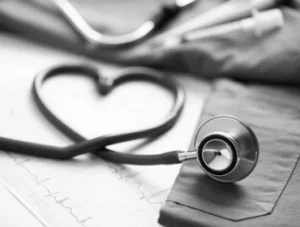All About Alcoholic Rage Syndrome: The Angry Drunk Phenomenon and How To Get Past Alcoholic Rage


You may still want to help your loved one when they are in the middle of a crisis. However, a crisis is usually the time when you should do nothing. When someone reaches a crisis point, sometimes that’s when they finally admit they alcoholic rage syndrome have a problem and begin to reach out for help. This episode of The Verywell Mind Podcast, featuring multi-platinum award-winning singer Bryan Abrams, shares his sobriety journey and how he found a treatment that actually worked.
How Anger and Alcohol Contribute to Domestic Violence

Medical detox is typically considered the optimal method for allowing alcohol to safely process out of the body while under continual medical supervision. When people have difficulty controlling impulses, trouble regulating their emotions, or may present a danger to themselves and/or others, medical detox is required. Medical detox programs are often the first stage in a comprehensive addiction treatment program. These programs usually last 5-7 days on average and commonly use medications to manage difficult physical and emotional withdrawal symptoms. Anger management issues may be rooted in a specific mental health disorder in some cases.
- People known to have anger outbursts on alcohol can end up destroying relationships.
- Ryan offered a more extreme example of this type of interaction.
- I’ve spent time researching and observing, trying to understand why some people turn into angry drunks while others become happy ones.
- Addressing and letting go of anger is vital in the Alcoholics Anonymous (AA) 12-step approach, which involves a moral self-inventory and overcoming personal flaws.
Follow the UK low risk drinking guidelines
When you drink alcohol, those inhibitions are lifted, and if you’re feeling angry, you’re more likely to express it and do so in an exaggerated way. Luckily, addiction treatment professionals are aware of the connection between alcohol consumption and anger and have developed resources to help. While the study indicates that individuals with an inclination to consider the present over the future are more likely to display angry reactions while drunk, it’s clear that alcohol has a link to anger. Recovery from addiction isn’t just the absence of substances, but rather a way of life.
Contact Gateway Foundation Today to Learn More About Alcoholism and Anger
These communities offer peer support, allowing individuals to share experiences and gain insights from others who’ve battled similar issues. When alcohol fuels aggression, it’s a tough situation for everyone involved. The first step in managing this issue is understanding that there’s no one-size-fits-all solution. It’s crucial to identify the reasons behind an individual’s angry outbursts while intoxicated and tailor an approach that fits their specific needs. I’ve spent countless hours researching the societal implications of angry drunken behavior.
For example, depression can cause feelings of loneliness or isolation. However, there are many various ways that one of these illnesses can lead to another. Later, it can cause fatigue, bleeding and bruising, itchy skin, yellow discoloration of the skin and eyes and fluid accumulation in the abdomen known as ascites. Fluid buildup in end-stage liver disease is a particularly ominous sign. Fifty percent of patients with ascites typically die within two years if they don’t have a liver transplant. When sober and angered you might feel an impulse to punchsomeone, but a fear/worry of the possible consequences (get hurt, hurt someoneelse, get arrested etc.) keeps you from doing so.
Don’t Take It Personally
- Anger often leads to excessive drinking, which can then amplify anger issues.
- Many people may naturally become angry or upset when drinking, but it’s not necessarily their fault.
- When you drink alcohol, those inhibitions are lifted, and if you’re feeling angry, you’re more likely to express it and do so in an exaggerated way.
- This article discusses some of the facts behind the stereotype of the “angry drunk” and explores the connection between anger and alcohol.
- We’ve heard of the “raging alcoholic” or “angry drunk” stereotype, but is there any truth to the idea?
Examples of Stimming: A Closer Look at This Common Behavior

